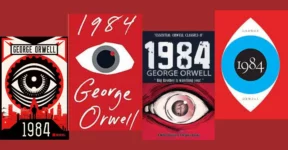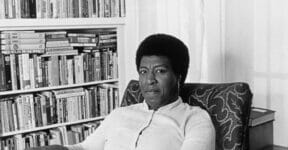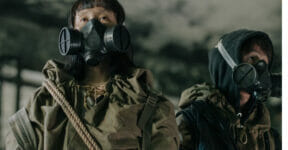1984 the book is dystopia at its best! The term “Orwellian” and the story of Winston Smith in 1984 are now universally accepted as representatives of anything totalitarian and the fear for an unwelcome dystopian future. The relevance to today’s fears of a repressive government is uncanny, perhaps mind-blowing, given the fact that George Orwell finished the novel in 1948. It was first published in the UK on June 8, 1949 (five days later in the US) and was almost immediately regarded as one of the sci-fi literary greats. Check out the 1984 theme, story, characters, and more details below.
Warning against Totalitarianism
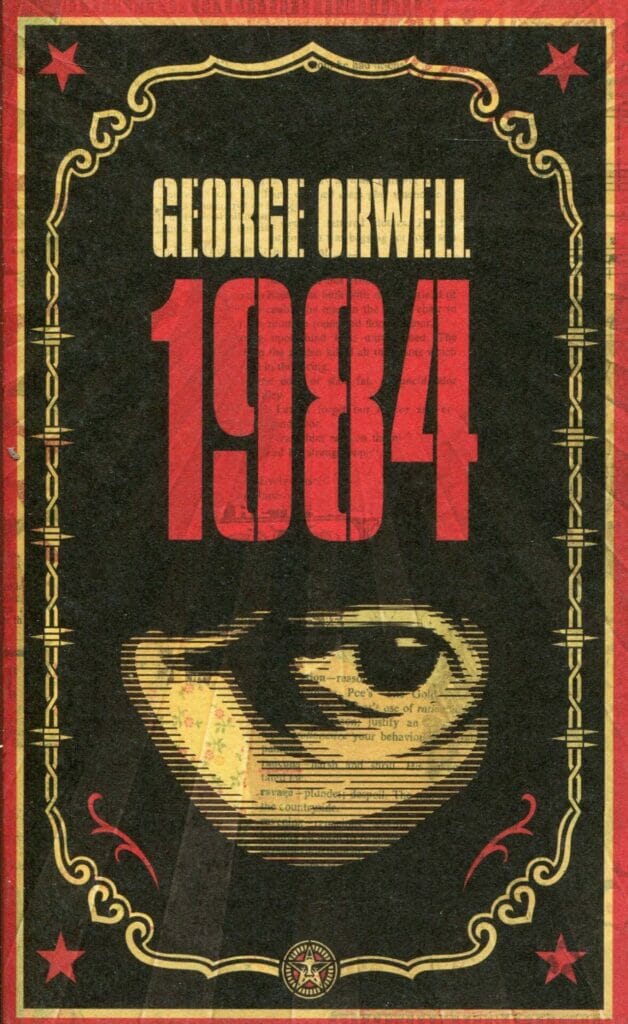
Nineteen Eighty-Four, also known as 1984, written by English novelist and journalist George Orwell, tells the story of Winston Smith in his battle against the threat of totalitarianism. The author’s name along with the concepts of Big Brother, Thought Police, and Room 101 have made their way into the mainstream cultures and retained a resonance since the first day of publication; an achievement very few books can match.
Big Brother takes the role of an omnipotent ruler, whereas Thought Police represents a government that dictates what and how people should think. The repressive regime utilizes Room 101, a torture chamber to brainwash rebels. The combination of the three makes for a fear mongering dystopian regime with an insatiable hunger for power and control. Citizens who resist Big Brother and the Thought Police are subjected to psychological and physical torments near impossible to endure. The sufferings only stop when their disobedience is subdued.
Characters
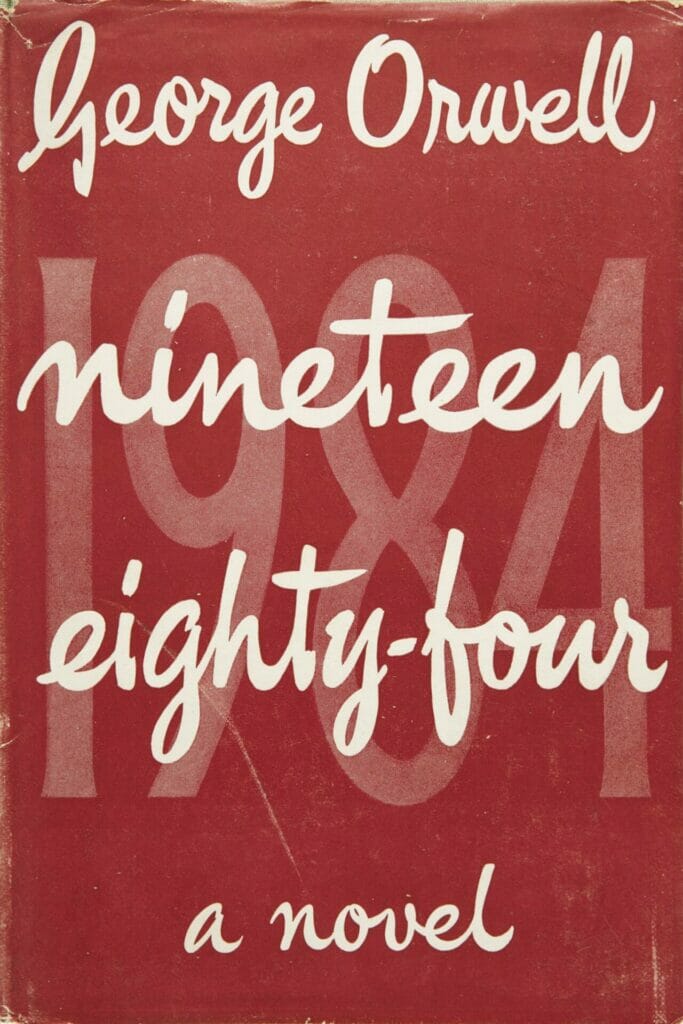
There are only about a dozen characters in Ninety Eighty-Four. Among the most prominent are as follows:
· Winston Smith: a Ministry of Truth employee, whose main job is to rewrite historical records in accordance with the government or the “Party.” Despite the job, Winston dislikes repression and despises totalitarianism. The 39-year-old everyman has a big dream of revolution.
· Julia: also an employee of the Ministry of Truth, the beautiful girl is Winston’s lover. She enjoys sex very much and rebels against the government at a personal level – but only from the waist down.
· Big Brother: the most powerful entity in Airstrip One (formerly Great Britain) of Oceania, where the story takes place. Big Brother never appears in person but is perceived as the undisputed ruler of the nation. His image, bearing a warning “Big Brother is Watching You” is an ever-present propaganda mark on everyday items like coins and TV.
· O’Brien: an official of the Party and undercover Thought Police agent, posing as a member of some rebels known as The Brotherhood.
· Mr. Charrington: another Thought Police agent on an undercover mission. Mr. Charrington poses as a secondhand store owner in the proletariat neighborhood and a friend of Winston’s. During his mission, he seems to support Winston’s idea of a revolution and even allows Winston to carry out an affair with Julia in a room above the store.
· Emmanuel Goldstein: a former high-ranking figure in the Party turned leader of The Brotherhood. An enemy of the state, Goldstein never appears in the novel, but he exerts an influence over Winston’s life.
There are other supporting characters like Parsons and Syme, who are both Party loyalists and working at the Ministry of Truth. The former is uneducated yet friendly, while the latter – according to Winston – is too intelligent for his own good.
Total Obedience
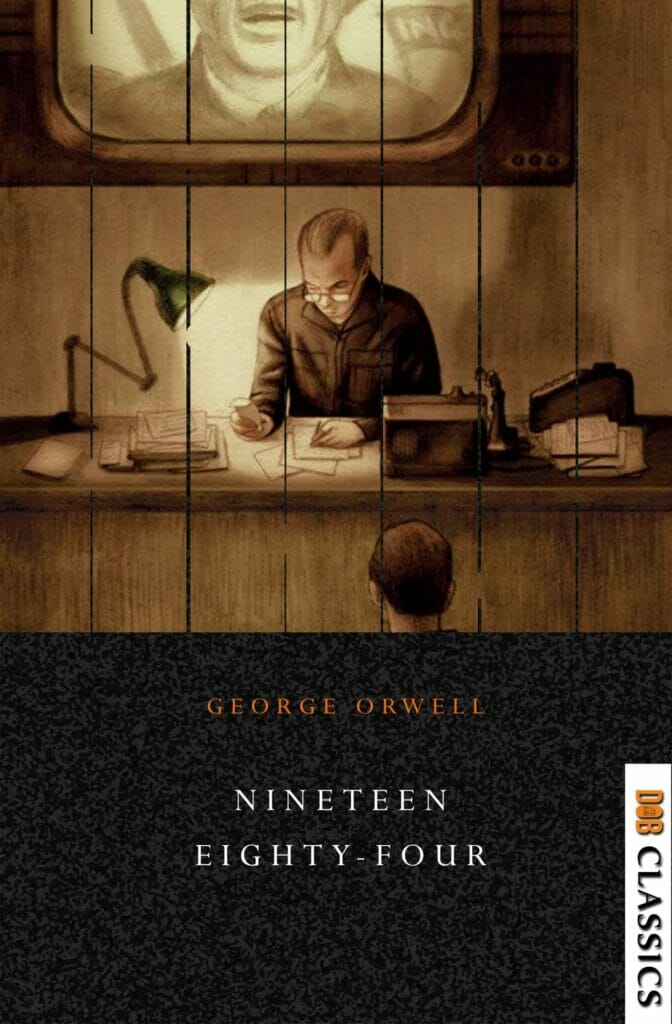
A future fictional version of Great Britain, called the Airstrip One in the novel, is a dystopian society in which the government enforces constant monitoring over the citizens. It conveys two major themes: state-sanctioned widespread surveillance and repressive totalitarianism.
Citizens are under 24/7 monitoring by the Party’s informants living among the public, hidden microphones and cameras installed in various and numerous spots across the city, and two-way televisions. The Party’s knowledge of individual citizens is used as an advantage to inflict pain to anyone who demonstrates even the slightest hint of resentment. Anything less than complete obedience is unacceptable. Offenders are categorized as “unpersons,” punishable by imprisonment and torture in Room 101.
Control of Information
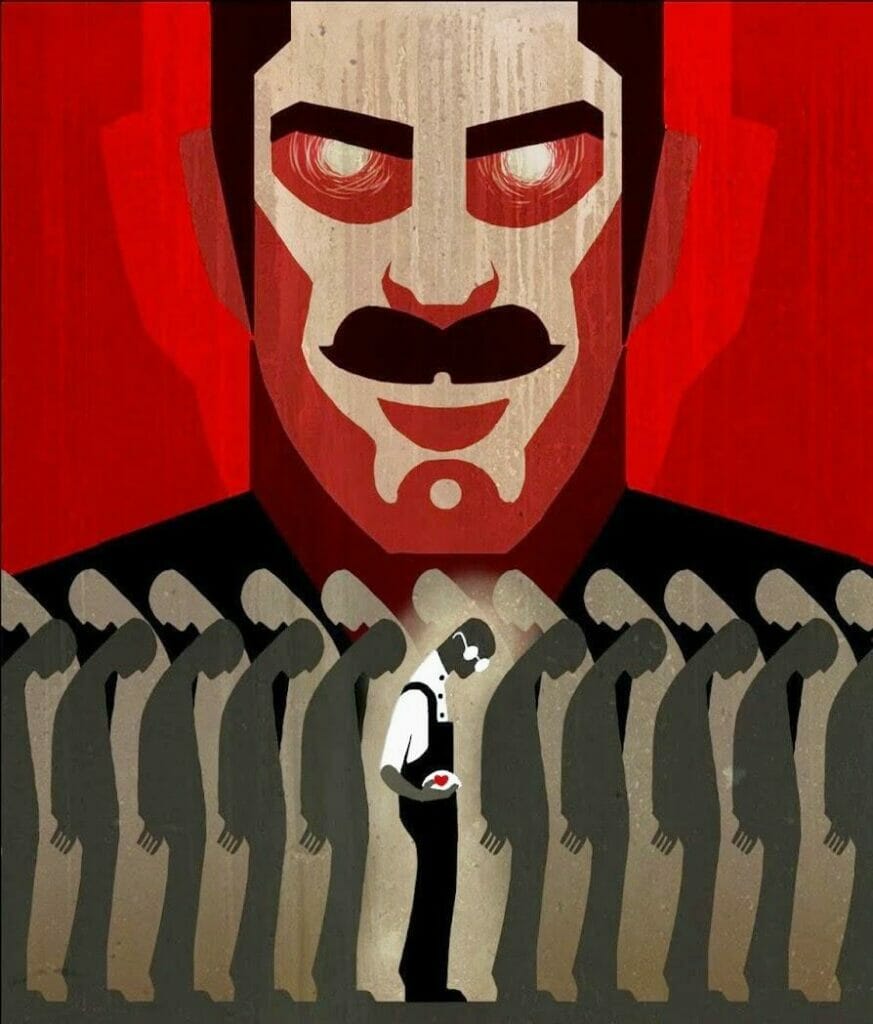
A major 1984 theme is control of information. As the novel was written before the advent of computers, it mentioned a complex mechanism the Party employs to exert total control over information and economic production. In an era where technology was near universally perceived as a tool to advanced human civilization, Orwell gave the idea that it too could become a device to extend the arms of evil. Objective journalism doesn’t exist. Every source of information and content of newspapers are written and rewritten only from the perspective of the Party. Negative views toward the government must be erased.
Control of History

Winston’s job at the Ministry of Truth is to create the truth by correcting old newspapers so the contents are always aligned with the Party’s version of the story. In a way, Winston is rewriting history on daily basis. Individuals are banned from keeping historical records and documents of any sort, rendering their memories unreliable and fussy at best. Big Brother’s government micro-manages the present, so they can manipulate the past. By taking control of the past, they can justify every questionable action.
Freewill is Life-threatening

At the end of the day, Winston is simply powerless against the far-reaching arm of Big Brother. Just as Mr. Charrington has enough information about Winston’s inquisitive mind about Emmanuel Goldstein and the idea of overthrowing the Party, the story is about to reach the end. Winston and Julia are captured and locked-up in Room 101 for “re-education” before they can be re-assimilated into the brainwashed public.
Analysis

In short, Ninety Eighty-Four (1984) is a striking reminder of malicious power in the hands of unaccountable governments. Written in post-World War II Britain, the novel’s Big Brother appears to be directly inspired by both Stalinism and Nazism. Free speech is rewarded with imprisonment and torture, while critical thinking is crushed under propaganda. Winston Smith serves as a symbol of ordinary, civilized, and freedom – every value rendered vulnerable and meaningless before an all-powerful government.
For us, the government portrayed in 1984 (the book) was a frustrating and all too powerful entity that couldn’t be beaten. At least in The Hunger Games, Katniss and the gang had a revolution that promised to change the way things were done. Do you see similarities between events in 1984 and what’s happening now in our own world? Or do you just read the billboards and agree with whatever they say? Let us know. We’d love to hear from you.
Other things you might want to know about.
10 of George Orwell’s famous quotes.
According to bookroo.com there are some famous quotes from the George Orwell’s 1984.
- “We know that no one ever seizes power with the intention of relinquishing it.”
- “The consequences of every act are included in the act itself.”
- “Power is not a means; it is an end. One does not establish a dictatorship in order to safeguard a revolution; one makes the revolution in order to establish the dictatorship. The object of persecution is persecution. The object of torture is torture. The object of power is power.
- “It is curious to think that the sky was the same for everybody, in Eurasia or Eastasia as well as here. And the people under the sky were also very much the same—everywhere, all over the world, hundreds or thousands of millions of people just like this, people ignorant of one another’s existence, held apart by walls of hatred and lies, and yet almost exactly the same—people who had never learned to think but were storing up in their hearts and bellies and muscles the power that would one day overturn the world.”
- “He felt as though he were wandering in the forests of the sea bottom, lot in a monstrous world where he himself was the monster. He was alone. The past was dead, the future was unimaginable.”
- “In the face of pain there are no heroes.”
- “If you loved someone, you loved him, and when you had nothing else to give, you still gave him love.”
- “I enjoy talking to you. Your mind appeals to me. It resembles my own mind except that you happen to be insane.
- “Four legs good, two legs bad.
- “The masses never revolt of their own accord, and they never revolt merely because they are oppressed. Indeed, so long as they are permitted to have standards of comparison, they never even become aware that they are oppressed.”
For more quotes, go to bookroo.com and read George Orwell’s Quotes.
What are some other novels by George Orwell?
According to thriftbooks.com this is a list of his most popular books.
Nineteen Eighty-four
Animal Farm: A Fairy Story
Animal Farm and 1984
Homage to Catalonia
Down and Out in Paris and London
Go to thriftbooks.com for more titles and information about each of these books.
Facts about George Orwell.
According to bl.uk Orwell was a novelist, journalist, essayist and critic. He is best known for his novels Animal Farm and 1984.
George Orwell was the pseudonym of Eric Arthur Blair. He used a pseudonym to avoid embarrassing his parents, a hedge against failure, and partly because he didn’t like the name Eric.
At first Orwell wrote non-fiction. His first book was Down and Out in Paris and London. After writing this he moved to Paris. He wrote novels and short stories that no one would publish. He had several years of severe poverty.
His political views were described as democratic socialism. He was somewhat controversial.
He died in 1950 of tuberculosis.
Go to bl.uk to read more details about George Orwell. It’s a very interesting read.


